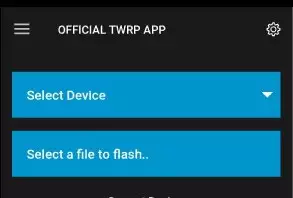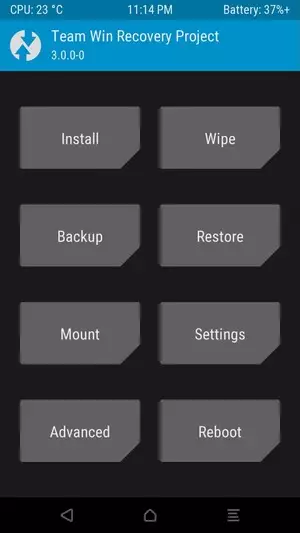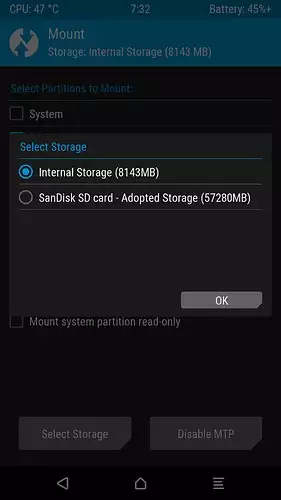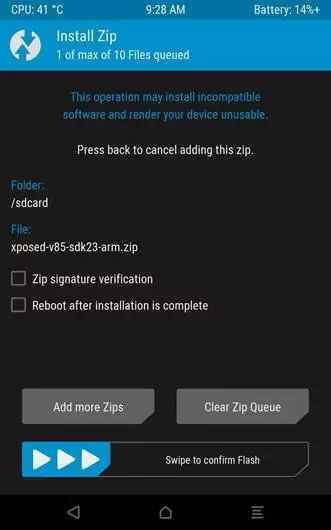Flash firmware on Infinix Buzz X260
Mobiles >> Infinix >> Infinix Buzz X260| Specifications | Reviews | Secret codes |
| Unlock phone | Root phone |
| Backup | Flash Firmware | Screenshot |
How to flash Infinix Buzz X260?
Why reinstall the firmware?
Errors constantly appear in the Android operating system.
Some installed applications do not open.
Some programs from the Play Market do not start.
The phone restarts or shuts down randomly.
The phone slows down a lot during operation.
You are not satisfied with the functionality of the stock (official) firmware.
Where can I find the firmware?
On the official website of your phone manufacturer.
On specialized resources where users post custom or official OS.
What should be done before installing the firmware?
Create a backup copy of user data, contacts and photos and transfer it to your computer.
Insert an SD card into the gadget. It must have enough memory for the firmware.
Determine your smartphone model.
Fully charge your device. If the battery runs out during the firmware, the device will no longer turn on.
Find and download the archive with Firmware. Place it on the SD card.
Installing TWRP Recovery
Download and install the Official TWRP App from the Play Market.
At the first start, you need to give consent to future manipulations, as well as consent to granting the Superuser rights to the application. Check the checkboxes and press the 'OK' button.
After moving to the next screen, you need to select the 'TWRP FLASH' item and give the application root rights.

On the main screen of the application, click on the 'Select Device' drop-down list, and select your phone model.
After selecting a device, the application will direct the user to a web page to download the appropriate modified recovery environment image file. Download the suggested *.img file.
After downloading the image file, go to the main screen of the Official TWRP App and press the 'Select a file to flash' button. Select the file downloaded in the previous step.
Press the 'FLASH TO RECOVERY' button and confirm your choice, press 'OK'.
The recording process is very fast, and upon completion, the message 'Flash Completed Succsessfuly!' appears. Click 'OK'. The TWRP installation procedure can be considered complete.
Copy the required files to the SD card. Using a PC or laptop card reader, it will be much faster.
Insert a memory card into your phone.
To reboot into recovery, you need to use a special item in the Official TWRP App menu, accessible by pressing the button with three stripes in the upper left corner of the main screen of the application. Open the menu and select the 'Reboot' item, and then click on the 'REBOOT RECOVERY' button.
Firmware via TWRP

Before flashing, it is recommended to clear the 'Cache' and 'Data' sections. This will delete all user data from the device, but avoid a wide range of software errors and other problems. You must press 'WIPE' on the main screen.
Now you can start flashing. Press the 'Install' button.

On the file selection screen, at the very top there is a 'Storage' button for selecting an SD card.
Select the location where you copied the files..

Find the file we need and click on it. A screen opens with a warning about possible negative consequences, you need to check the item 'Zip signature verification', which will avoid using corrupted files when writing to the phone's memory sections.
The procedure for writing files to the phone's memory will begin, accompanied by logging and filling in the progress bar.
After completing the installation procedure, a 'Successful' message appears on the screen.
Summary: 2G Network: GSM 850 / 900 / 1800 / 1900; 3G Network: HSDPA 900 / 1900 / 2100; 4G Network: No; SIM: Dual mini SIM; Dimensions: 113.8 x 66.4 x 11.9 mm; Keyboard: Full QWERTY keyboard and Touchscreen; Colors: White, Black; Cover: Plastic; Type: TFT capacitive touchscreen touchsreen with 16,000,000 colors; Screen Size: 480 x 320 pixels, 2.6 inches, 222 pixels per inch (PPI); Card slot: MicroSD, up to 32 GB; Internal: 512 MB; Operating System: Android 4.0 Ice Cream Sandwich; Processors: 1.0 GHz dual-core CPU; RAM: 512 MB; Alert types: Vibration, MP3 ringtones; Loudspeaker: Yes; Audio port: 3.5mm jack; 2G: GPRS - up to 85.6 kbps; EDGE - up to 236.8 kbps; 3G: Up to 7.2 mbps uplin ...
Comments, questions and answers on the flash firmware Infinix Buzz X260
Ask a question about Infinix Buzz X260



